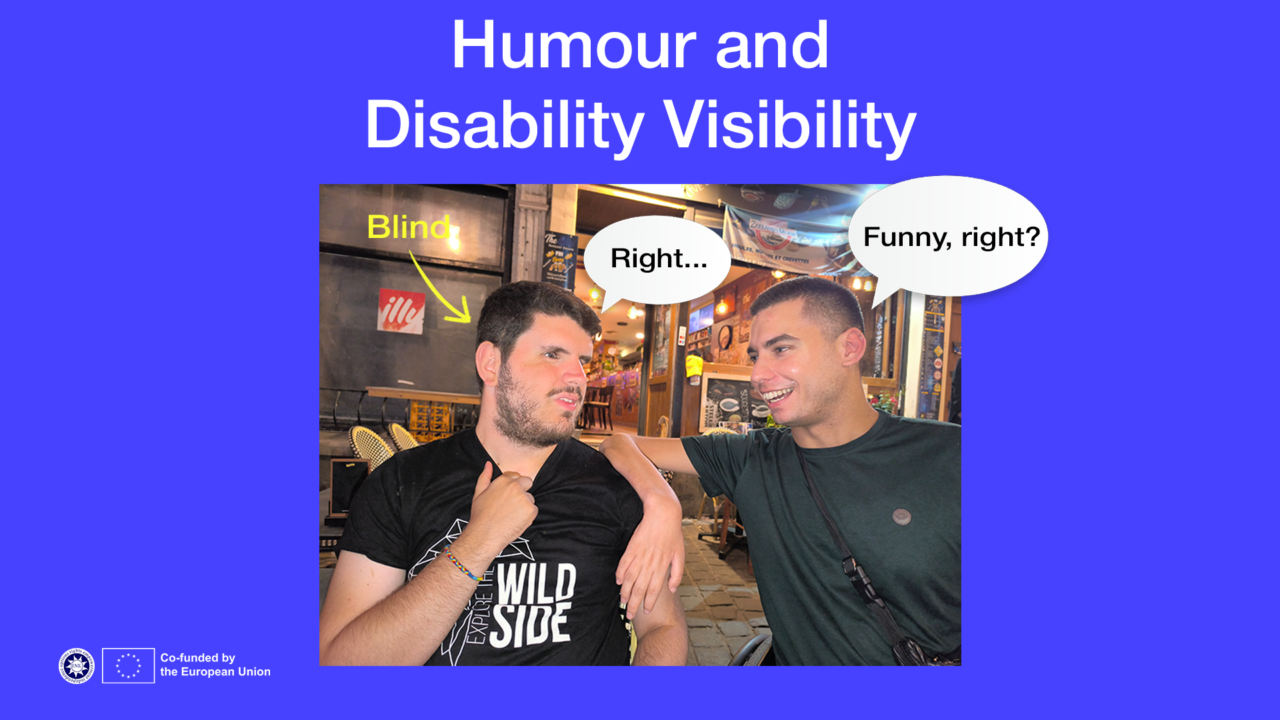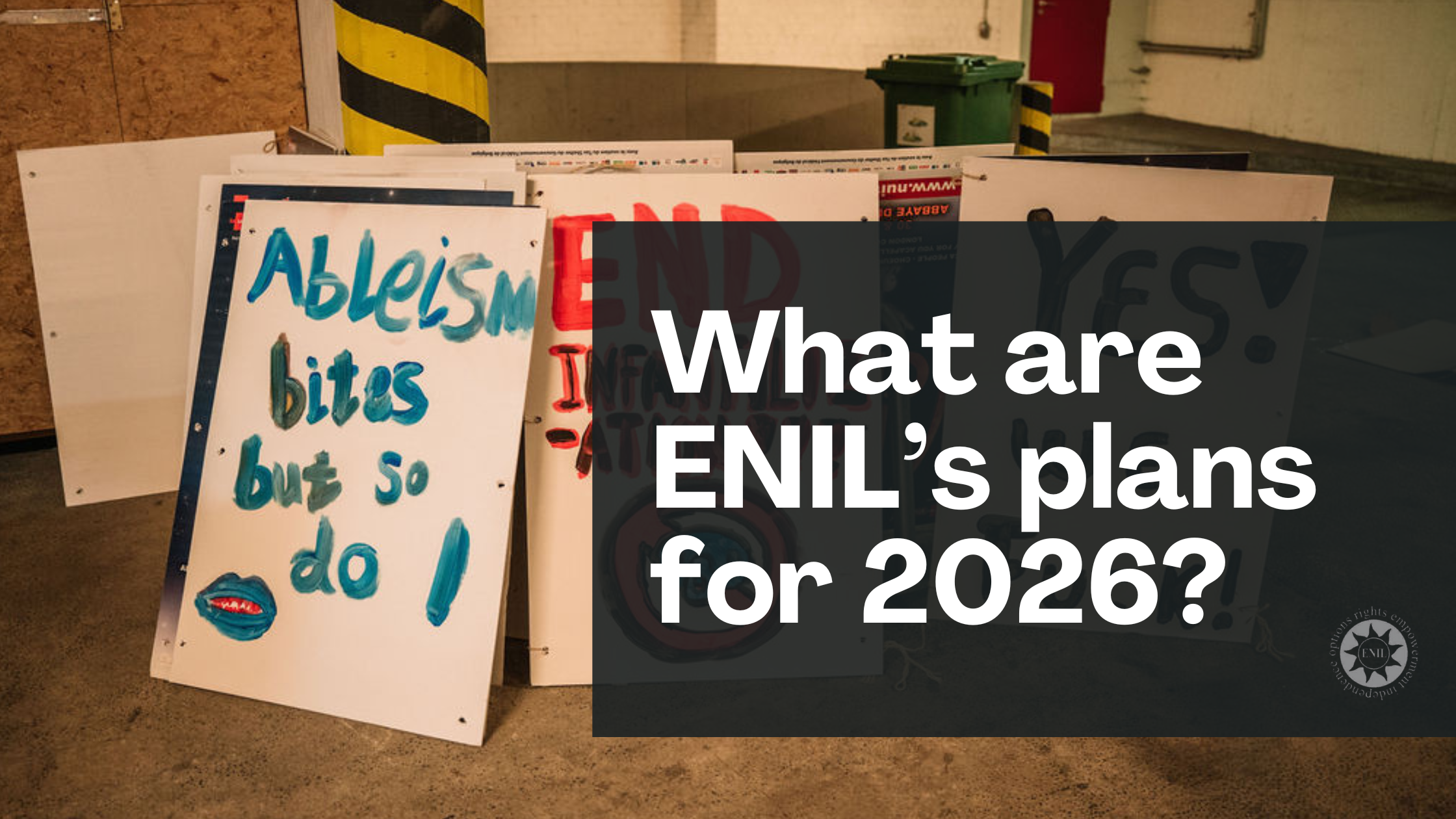By Christos Meletis – ENIL, Volunteer
Being a Greek wheelchair user for the past seven years—and a disabled person my entire life—I’ve had plenty of opportunities to observe how people joke about disability. I’ve heard comments like, “You’re Hot Wheels!” or “Do you need a license to drive that thing?”. You might think that these jokes upset me, but honestly, they didn’t.
What struck me as truly bizarre was not the jokes themselves, but the fact that people often found them hilarious. Jokes that, to me, felt shallow or overused seemed to spark laughter as if they’d just invented stand-up comedy.
I noticed this again and again, but didn’t give it much thought—until about two years ago, when I met my now-best friend, Yannis. Yannis is blind, and before meeting him, I hadn’t had much interaction with blind people. So, at first, it felt like navigating uncharted waters.
One of the first eureka moments for this article came while hanging out with Yannis. I was teasing him, making light jokes about his blindness. For example, if he said, “Let’s watch a movie,” I’d reply, “I’ll watch, you’ll listen!” I thought it was a clever, light-hearted comment. But to Yannis, it wasn’t offensive—it was just exhaustingly unoriginal. He’d heard the same joke hundreds of times.
Without even realizing it, I was doing to Yannis what others had done to me: telling the same shallow disability jokes.
This led me to wonder—why do people do this? Why do so many jokes about disability feel so repetitive and flat?
Then I came across a research paper on creativity (Dippo, 2013). In it, participants were asked to think of as many uses as possible for a paper clip in a specific timeframe. Initially, most people came up with the same ideas. Only after extended engagement with the task did participants begin to create more original and interesting results.
The insight? Novelty requires familiarity and friction. Creative ideas often emerge only after spending meaningful time with a subject.
Let’s apply that to disability humour. If you ask 100 people to come up with jokes about disability, they’ll probably say similar things at first—jokes based on surface-level ideas. Only those who have spent more time thinking, learning, and engaging with disabled people might come up with more thoughtful, creative (and actually funny) humour.
That brings me to the second eureka moment: shallow disability jokes are a symptom of low visibility. When people rarely interact with disabled people, their frame of reference is limited. They haven’t had the exposure—or the time—to move past obvious jokes and into something more insightful or genuinely funny.
This highlights a deeper issue: the lack of inclusion of disabled people in everyday life. In a truly inclusive society, where disabled and non-disabled people grow up together, go to school together, work together—those surface-level jokes would get used up early, maybe in childhood. And they might even land, because they’d be shared in a context of mutual understanding.
But in a society lacking inclusion—like in Greece, for instance—non-disabled people often meet very few disabled people. So when they do, we become the default target for the same tired joke. Over. And over. Again.
So please—make Greece -and Europe- more accessible and inclusive.
Not only so that I don’t have to do wheelchair parkour to move around…
Do it so that Yannis and I don’t have to hear the same jokes a thousand more times.



